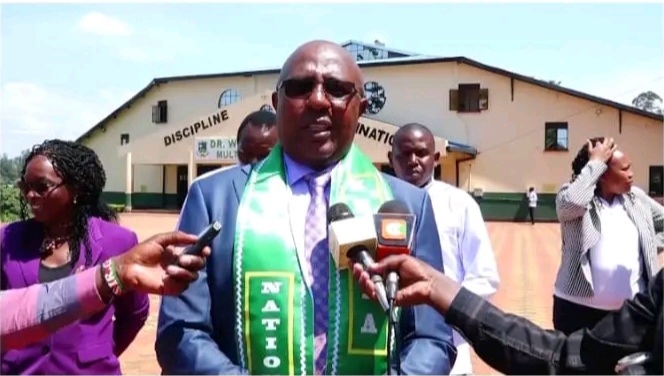
Secondary school principals in Kenya are advocating for a comprehensive set of measures to combat cheating in the upcoming Kenya Certificate of Secondary Education (KCSE) examinations.
The rehearsal day for KCSE candidates is scheduled for October 18, 2024, according to the exam timetable.
Following that, the oral, practical, and foreign language papers will take place from October 22 to November 1, 2024.
In a report from the Kenya Secondary Schools Heads Association (Kessha), school leaders are urging the government to implement mobile signal jamming and rotate invigilators to enhance examination security.
They emphasize the need for increased surveillance to effectively tackle cheating.
The association asserts that despite a ban on mobile phones in exam centers, collusion among certain officials and teachers continues to undermine the integrity of the exams.
“Rotation of invigilators will also reduce familiarity and potential collusion. Install CCTV cameras to monitor examination halls,” the principals stated.
They further recommend the introduction of screening devices at examination centers to prevent candidates and unauthorized individuals from bringing mobile phones into exam venues.
Currently, invigilators physically search candidates, but this method lacks the technological support needed to detect concealed mobile devices and other prohibited materials. During these searches, some candidates have been discovered with banned items, including mobile phones and notes.
The principals are also calling for a significant restructuring of the Kenya National Examinations Council to grant it more autonomy and independence, thereby closing loopholes that allow for manipulation.
“Independence ensures unbiased examination processes and minimizes external influence,” they emphasized through Kessha.
Additionally, the principals insist on strict compliance with the law prohibiting the ranking of schools and candidates, noting that such rankings create undue pressure and lead to result manipulation.
The government had previously instituted this ban to mitigate cheating in national examinations.
To further enhance the credibility of the KCSE, the principals support a proposal from the Teachers Service Commission to limit invigilation to secondary school teachers.
Currently, primary school teachers make up the majority of invigilators.
“Secondary school teachers have a better understanding of the high school students they are managing. Secondary school teachers could be more assertive and effectively control candidates because of their regular interaction with them,” Kessha chairperson Willy Kuria said.
Kuria, who is also the principal of Murang’a High School, noted that competition among secondary schools may encourage these teachers to be more vigilant against cheating.
Moreover, the principals criticized a TSC policy promoting school administrators based on performance, arguing that this fuels cheating as principals strive for higher scores to avoid demotion.
“There should be a change of promotion criteria to ensure a focus on holistic student development. There should be an end to political interference; shield exams from political agenda,” Kessha stated.
They also advocated for continuous assessment rather than relying solely on final exams, emphasizing the need to promote integrity among teachers.
“Teachers nabbed while abetting cheating should be arrested, charged, and dismissed as a deterrent measure to greedy teachers seeking shortcuts for higher grades.”
The principals have called for increased financial resources for schools.
“The needs-based funding allocates resources based on school needs, not just enrollment numbers. Ensure adequate funding for candidates’ preparation,” Kessha advised.
The 2022 KCSE faced serious allegations of cheating, resulting in the suspension of several education officials implicated in the scandal.
Following unexpected spikes in performance at certain institutions, MPs were compelled to investigate the credibility of the examination.
A report from the Education Committee highlighted that some candidates had attempted to sneak mobile phones into examination centers during the testing period.
“Some centres reported candidates to have attempted to sneak mobile phones in the examination centres during examination sessions,” the report stated.
![]()


